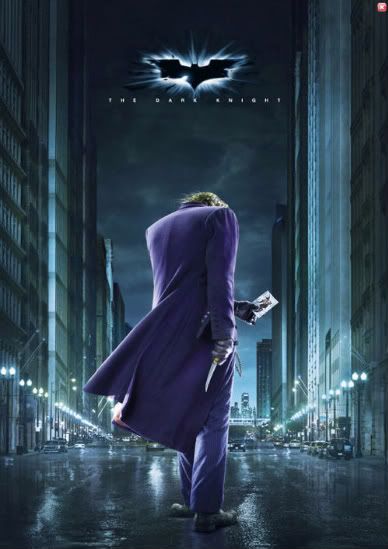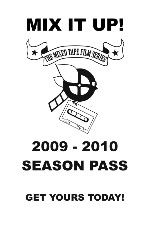Lessons from The Dark Knight: Good things can happen to movies that are great.

There is a belief in Hollywood and even among film critics that blockbusters and 'great' films are two separate things. That the former is supposed to be a saccharine, 'leave your brain at the door' kind of experience, while the latter is genuine with an exclusive claim on reverence. The entire filmgoing calendar is pretty much organized around this principle: So forgetful are the voters for the Oscars and Golden Globes, that the usually awful 'popcorn munchers' hit theaters between the months of May and August, giving what can ultimately be referred as the 'awards whores' (i.e., movies released between September and early January) free reign at both ceremonies.
This system is extremely flawed because it leaves some movie producers with the bent logic that if the movies that hit theaters around the fall are supposed to be 'intelligent,' then apparently, the movies that come out during the summer months should be thoughtless. It's almost like some of these executives say, 'Who cares if this film has no ideas and barely makes sense, it's a blockbuster - go make a kick-ass marketing campaign and sell the crap out of this turkey!' That had to have been what the people at Sony said with every step of production on Spider-Man 3. There's no excuse for that film to have been as bad as it was otherwise.
But then Chris Nolan made The Dark Knight and proved everybody wrong. In the guise of a $180 million-budgeted blockbuster, the director and his brother Jonathan crafted a brilliant film fraught with ideas about human morality. Between the explosions, fight scenes, and the intense moment when Batman uses his motorcycle to flip the Joker's semi, the movie has the audacity to ask, "As a species, are humans inherently good or evil?"
He may state otherwise in the film, but the particular version of the Joker (played up to icon status by Heath Ledger) cooked up an elaborate plan. He wants to turn so-called normal and decent people into killers so that their souls will reflect the twisted ugliness of his mysteriously scarred face. He's even ready to die for this principle. The Joker's most defining moment takes place during the part where he slides out of his wrecked truck, and while he's holding a machine gun, he lowers it as Batman charges at him on the Batpod. "Come on, I want you do it, I want you to do it," The Joker says. "Come on, hit me. Hit me!"
Of course, the Batman conquers this temptation by swerving at the very last second, an act that defines him ultimately as well. Considering that the villain in most summer blockbusters exist only to be killed by the good guy, it's a miracle this sequence managed to pass through the committee of people pumping money into this flick. It certainly didn't go down the same way as the first time Batman and the Joker faced off in Tim Burton's Batman. While Jack Nicholson's Joker was originally supposed to be apprehended and locked up in Arkham in the original screenplay by Sam Hamm, the studio brass wanted something more conventional. The Batman had to murder the Joker by yanking him off a helicopter with one of his silly gadgets, and the Joker had to scream while clinging for his life even though that was something neither character would have done.
Hollywood has so much contempt for audiences, that whenever they make make a movie with a large budget, they try to do so without challenging the people who might view their movies. And yet here we are with The Dark Knight, a movie that asks us to think and care about what's happening on the screen. How have we responded to the movie's challenge? We've made it into the biggest movie of the year. Not because a lot of people are going to see it once, but because many of them are going to see it twice, thrice, or more. Even with my busy filmgoing schedule, I've managed to see the film three times already, and plan on finally seeing it again in IMAX, something I would not even consider doing had the film not been as great as it is.
The Dark Knight even stands a chance at being the greatest box-office draw of all time, but even if this never happens, Hollywood has no excuses from now on. The public has spoken, and it's clear we demand quality from our summer blockbusters. After this summer, there's no valid reason for shoddily made glop like Fantastic Four or Spider-Man 3. Just because a film is based on a comic book, video game, TV show, or another movie is not enough. Sure that might catch the attention of the waning filmgoing public, but if someone actually tries to make a good movie like they did with The Dark Knight, they might actually stand a chance of keeping it.




0 Comments:
Post a Comment
<< Home